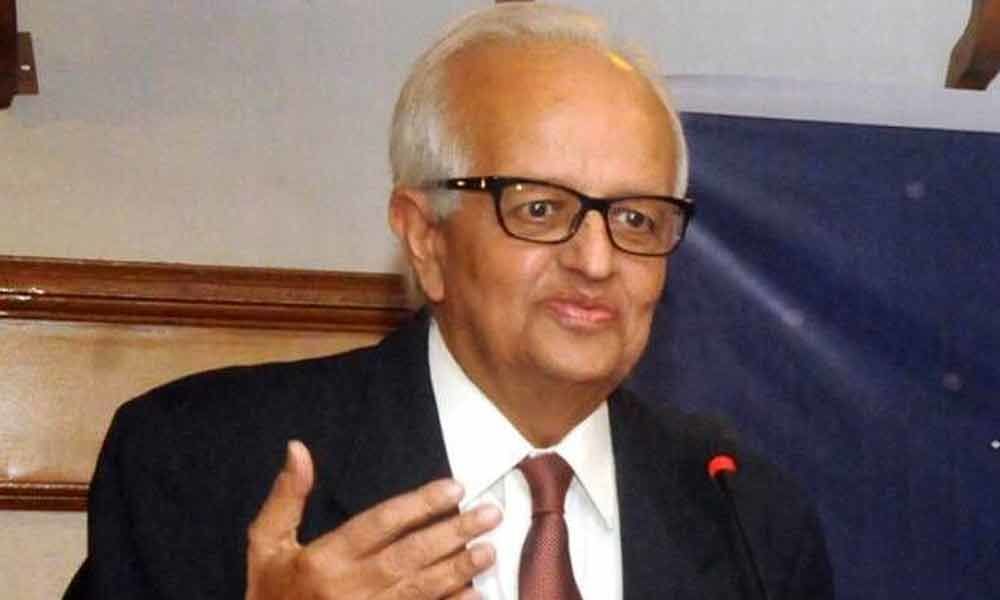Jalan panel may recommend `50K cr

RBI is likely to suggest about sub-lakh crore of transfers from the contingency reserves that can be done as per a formula arrived at by the ECF panel members and this amount is likely to be `50,000 crore
New Delhi: The Bimal Jalan panel, which is looking into the size of capital reserve that the Reserve Bank of India should hold, may recommend transfer of Rs 50,000 crore to the Centre from the contingency fund. The panel will submit its report this week to the RBI.
Sources said the RBI is likely to suggest about sub-lakh crore of transfers from the contingency reserves that can be done as per a formulae arrived at by the ECF panel members and this amount is likely to be Rs 50,000 crore.
As per the 2017-18 RBI annual report, the various types of reserves are Contingency Fund Rs 2.32 lakh crore, Asset Development Fund Rs 22,811 crore, Currency and Gold Revaluation Account is Rs 6.91 lakh crore and Investment revaluation Account Re-Securities is 13,285 crore and this all totalled Rs 9.59 lakh crore.
While the Centre is keen on the entire contingency fund -- Rs 2.32 lakh crore, the Jalan panel is not inclined to transfer the entire fund reserve to the Government citing currency fluctuations are the order of the day so higher reserves.
The government feels that through transfer to contingency reserves and other funds, the RBI has more than adequate capital.
While speculations were that the Centre is keen on one-third of the total reserves of the Rs 9.6 lakh crore, last year the government had said that there is no proposal to ask RBI to transfer Rs 3.6 (lakh crore) or Rs 1 lakh crore. Despite government's denial, the matter stay as is. Officials said "Currently, the RBI's capital needs put its provisioning at 27 per cent, while most central banks have theirs at 14 per cent. Our calculations state that if the RBI provisions at 14 per cent, it can free up to Rs 3.6 lakh crore," a top official said.
"The forex reserves and asset revaluation reserves for the domestic bonds are encumbered. The government cannot touch them. As they have been arrived at with reference to value at which the particular asset was created in the books of RBI and consequently whatever depreciation or appreciation takes place and benefits take place, you provide it in the reserves. So, when that same thing reverses later, you pay it later from the reserves," said a former banking secretary.








